Wrth y bwrdd
Addoliad syml ar yr aelwyd ac mewn Eglwys Iau ar gyfer teuluoedd ifanc
Sul Olaf wedi'r Drindod
Gallaf fod yn deg
Ymlonyddu gyda'n gilydd
1. Goleuwch gannwyll.
2. Darllenwch:
A dywedodd Duw, "Bydded goleuni." A bu goleuni. Gwelodd Duw fod y goleuni yn dda; a gwahanodd Duw y goleuni oddi wrth y tywyllwch. A bu hwyr a bu bore, y dydd cyntaf.
Genesis 1:3-5
Dyma’r dydd y gweithredodd yr Arglwydd; gorfoleddwn a llawenhawn ynddo.
Salm 118:24
Meddwl gyda'n gilydd
Byddwch angen:
- Botymau siocled / pres / talebau / melysion
- Jig-so – ac (o ddewis) wedi’i osod yn barod i’w wneud mewn ystafell ar wahân
Anfonwch un person i ddechrau rhoi’r jig-so at ei gilydd. Dywedwch y bydd yn cael botwm siocled ar y diwedd.
Ar ôl ychydig o funudau* gadael i rywun arall helpu. Dywedwch y bydd yn cael botwm siocled ar y diwedd.
Ar ôl ychydig funudau anfonwch rywun arall eto i helpu. Dywedwch y bydd yn cael botwm siocled ar y diwedd.
Gwnewch hyn nes bod pawb yn gweithio ar y jig-so gyda’i gilydd.
Unwaith y bydd wedi’i orffen rhowch i bawb beth oeddech chi wedi ddweud fydden nhw’n cael eu ‘talu’/
Gofynnwch ydyn nhw’n meddwl eu bod wedi’u talu’n deg. Pam?
*meddyliwch pa mor fawr yw’r jig-so a phenderfynu faint o amser fydd ei angen er mwyn i bawb gymryd rhan.
Neu gallwch ofyn i bawb helpu gyda’r golchi llestri neu dacluso.
Darllen gyda'n gilydd
Cyn y stori heddiw, cafodd Iesu ei herio gan Pedr. Roedd Pedr a ffrindiau agos eraill Iesu, y disgyblion, wedi rhoi’r gorau i bopeth oedd ganddyn nhw i’w ddilyn. Roedden nhw’n gobeithio efallai y byddai yna wobr am hynny. Dyma beth dywedodd Iesu.
“Dyma sut mae'r Un nefol yn teyrnasu – mae fel meistr tir yn mynd allan gyda'r wawr i gyflogi pobl i weithio yn ei winllan. Cyn eu hanfon i'w winllan mae'n cytuno i dalu'r cyflog arferol iddyn nhw o un darn arian am ddiwrnod o waith.
“Yna, tua naw o'r gloch y bore, aeth allan eto a gweld rhai eraill yn sefyllian o gwmpas sgwâr y farchnad yn gwneud dim byd. ‘Os ewch chi i weithio yn y winllan i mi, tala i gyflog teg i chi,’ meddai. Felly i ffwrdd â nhw.
“Gwnaeth yn union yr un peth pan aeth allan tua chanol dydd, ac eto am dri o'r gloch y p'nawn. Hyd yn oed am bump o'r gloch y p'nawn gofynnodd i ryw bobl, ‘Pam dych chi'n sefyllian yma yn gwneud dim byd drwy'r dydd?’
“‘Does neb wedi'n cyflogi ni,’ medden nhw.
“Felly meddai wrthyn nhw, ‘Ewch i weithio yn y winllan i mi.’
“Pan oedd hi wedi mynd yn hwyr galwodd perchennog y winllan ei fforman, ac meddai wrtho, ‘Galw'r gweithwyr draw a thalu eu cyflog iddyn nhw. Dechreua gyda'r rhai olaf i gael eu cyflogi a gorffen gyda'r rhai cyntaf.’
“Dyma'r gweithwyr oedd wedi dechrau tua pump o'r gloch y p'nawn yn dod ac yn cael un darn arian bob un. Felly pan ddaeth y rhai gafodd eu cyflogi yn gynnar yn y bore, roedden nhw'n disgwyl derbyn mwy. Ond un darn arian gafodd pob un ohonyn nhw hefyd. Wrth dderbyn eu tâl dyma nhw'n dechrau cwyno. ‘Dim ond am awr weithiodd y rhai olaf yna,’ medden nhw, ‘A dych chi wedi rhoi'r un faint iddyn nhw ag i ni sydd wedi gweithio'n galed drwy'r dydd.’
“Ond meddai'r perchennog wrth un ohonyn nhw, ‘Gwranda gyfaill, dw i ddim yn annheg. Gwnest ti gytuno i weithio am y cyflog arferol, hynny ydy un darn arian am ddiwrnod o waith. Felly cymer dy gyflog a dos adre. Fy newis i ydy rhoi'r un faint i'r person olaf un i gael ei gyflogi. Mae gen i hawl i wneud beth fynna i gyda f'arian fy hun! Ai bod yn hunanol wyt ti am fy mod i'n dewis bod yn hael?’
“Felly bydd y rhai sydd yn y cefn yn cael bod ar y blaen a'r rhai sydd ar y blaen yn cael eu hunain yn y cefn.”
Roedd y gweithwyr a ddechreuodd gyntaf yn meddwl y dylen nhw gael mwy na’r rhai a ddechreuodd yn hwyrach. Ydych chi’n meddwl eu bod nhw’n iawn? Pam?
Roedd y tirfeddiannwr yn hael gyda’i arian – yn talu’r un faint i’r rhai a weithiodd lai ag i’r rhai a weithiodd trwy’n dydd. Roedd yn eu trin yn deg – roedd yn rhoi iddyn nhw beth oedd wedi’i gytuno.
Myfyrio gyda'n gilydd
Mae’r tirfeddiannwr yn y stori yn ein helpu i feddwl am Dduw. Mae Duw yn dewis fod yn hael gyda’i gariad ac mae’n ei roi i bawb – yn gyfartal.
Ydych chi’n meddwl fod rhai pobl yn haeddu llai o gariad Duw nag eraill? Pam?
A ddylai Duw garu’r Frenhines yn fwy na llofrudd? A ddylai Duw garu lleidr yn llai na chi?
Mae Duw yn caru pawb yr un fath! Efallai nid yw hynny i’w weld yn deg i ni ond dyna pam mae cariad Duw mor anhygoel!
Os mai dyna sut mae Duw yn caru, sut ddylwn ni fod?

Gweddio gyda'n gilydd
Byddwch angen:
- Darn mawr o bapur
- Gwahanol liwiau o baent
- Pen marcio tew a thenau
Tynnwch lun o galon fawr gyda’r pen marcio tew.
Rhowch eich bys yn y gwahanol liwiau o baent a’i wasgu i lawr tu fewn i’r galon. Rhowch freichiau a choesau i’r blob gyda’r pen marcio tenau. Unwaith y bydd y paent wedi sychu, gallwch dynnu llun wyneb arno hefyd.
Mae pob blob yn cynrychioli rhywun gwahanol rydych yn ei adnabod. Mae pob un yn wahanol ond mae pob un yn cael ei garu’n gyfartal gan Dduw.
Torrwch y galon allan a’i glynu ar eich oergell neu rywle ble mae pawb yn gallu ei gweld. Bob tro y byddwch yn edrych arni gofynnwch i Dduw eich helpu i gofio fod pawb yn un peth yn llygaid Duw, a bod Duw yn caru pawb yr un fath.
Gorffen gyda'n gilydd
Bydded i Dduw, ffynhonnell gobaith, eich llenwi â phob llawenydd a thangnefedd wrth ichwi arfer eich ffydd, nes eich bod, trwy nerth yr Ysbryd Glân, yn gorlifo â gobaith.
Diffoddwch y gannwyll.
Tanysgrifiwch i dderbyn hysbys ar e-bost am Wrth y bwrdd, Llythyr yr Esgob a chyhoeddiadau esgobaethol
At the table
Simple worship at home and at Junior Church for young families
The Last Sunday after Trinity
I can be fair
Stilling together
1. Light a candle.
2. Read:
God said, "Let there be light," and there was light, and God saw the light was good, and he separated light from darkness. So evening came, and morning came; it was the first day.
Genesis 1: 3-5
This is the day which the Lord has made; let us rejoice and be glad in it.
Psalm 118: 24
Thinking together
You will need:
- Chocolate buttons/coins/tokens/sweets
- A jigsaw – ready to be made and (preferrably) set up in a different room
Send one person to start putting together the jigsaw. Tell them they’ll get a chocolate button at the end.
After a few minutes* allow someone else to help. Tell them they’ll get a chocolate button at the end.
After another few minutes send someone else to help. Tell them they’ll get a chocolate button at the end.
Do this until everyone is working on the jigsaw together.
Once it’s completed give everyone what you said they would be ‘paid’.
Ask them if they think they were paid fairly. Why?
*think about the size of the jigsaw and decide on a good amount of time to let everyone join in.
Alternatively you could ask everyone to help with the washing up or tidying.
Reading together
Just before today’s story Jesus was challenged by Peter. Peter and Jesus’ other close friends, the disciples, gave up everything they had to follow him. They hoped there might be a reward for that. Here is what Jesus said.
“The Kingdom of heaven is like this. Once there was a man who went out early in the morning to hire some men to work in his vineyard. He agreed to pay them the regular wage, a silver coin a day, and sent them to work in his vineyard. He went out again to the marketplace at nine o'clock and saw some men standing there doing nothing, so he told them, ‘You also go and work in the vineyard, and I will pay you a fair wage.’ So they went. Then at twelve o'clock and again at three o'clock he did the same thing. It was nearly five o'clock when he went to the marketplace and saw some other men still standing there. ‘Why are you wasting the whole day here doing nothing?’ he asked them. ‘No one hired us,’ they answered. ‘Well, then, you go and work in the vineyard,’ he told them.
“When evening came, the owner told his foreman, ‘Call the workers and pay them their wages, starting with those who were hired last and ending with those who were hired first.’ The men who had begun to work at five o'clock were paid a silver coin each. So when the men who were the first to be hired came to be paid, they thought they would get more; but they too were given a silver coin each. They took their money and started grumbling against the employer. ‘These men who were hired last worked only one hour,’ they said, ‘while we put up with a whole day's work in the hot sun—yet you paid them the same as you paid us!’ ‘Listen, friend,’ the owner answered one of them, ‘I have not cheated you. After all, you agreed to do a day's work for one silver coin. Now take your pay and go home. I want to give this man who was hired last as much as I gave you. Don't I have the right to do as I wish with my own money? Or are you jealous because I am generous?’”
And Jesus concluded, “So those who are last will be first, and those who are first will be last.”
The workers who started first thought they should get more than those who started later. Do you think they were right to think this? Why?
The landowner was generous with his money – paying those who worked less the same as those who’d worked all day. He treated them fairly – he gave them what was agreed.
Reflecting together
The landowner in the story helps us to think about God. God chooses to be generous with his love and gives it to everyone - equally.
Do you think some people deserve less of God’s love than other people? Why?
Should God love the Queen more than a murderer? Should God love a thief less than you?
God loves everyone the same! That might not seem fair to us but that’s why God’s love is so amazing!
If that’s how God loves, how should we be?

Praying together
You will need:
- A large piece of paper
- Different colours of paint
- A thick and a thin marker pen
Using the thick marker pen paper draw a large heart.
Dip your finger in the different coloured paint and press it down inside the heart. Using the thin marker pen give the blob arms and legs. Once the paint is dry you can draw a face on them too.
Each blob represents someone different that you know. Each of them are different but they are all loved equally by God.
Cut out the heart and stick it on your fridge or somewhere you can all see it. Each time you look at it ask God to help you to remember that everyone is the same in God’s eyes and that God loves everyone the same.
Finishing together
The God of hope fill you with all joy and peace as you trust in him, that by the power of the Holy Spirit you may overflow with hope.
Blow out the candle.
